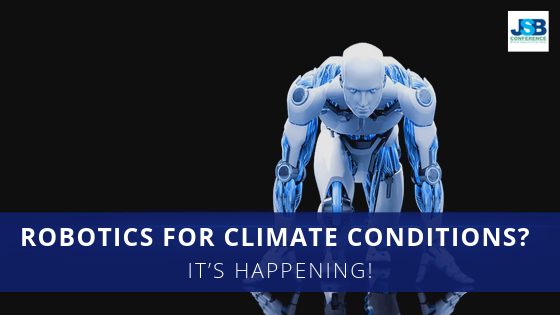
The era of the fourth revolution is here where robots will make robots. Recently, ABB began its new construction of robotics manufacturing and research facility in the world’s largest robotics market, China. The new construction will be the world’s most versatile and advanced factory in the robotics industry. It will be a center where robots will make robots. It will employ all the latest technological advancements such as artificial intelligence, machine learning, automation, and other cutting-edge technologies.
The fourth revolution also called Industry 4.0 has changed the world used to work earlier in all three revolutions. Almost half of the work performed by a human today is automated. Now researchers are also finding ways to incorporate advanced technology to curb global climate change.
Human activities largely contribute to climate change by emitting huge amount of greenhouse gases impacting the earth’s atmosphere leading to the climate crisis.
Robotics and automation deployment will help to reduce the negative impact of human activities. The technology has opened up opportunities for protection of the environment as well as research.
The emerging technology is having the potential to build the infrastructure and facility to lessen greenhouse gas emissions. The researchers suggest that automation and robotics can play a leading role in impacting climate resilience.
Robotics is already a leading technology with automation as its core aspect. Automation applied in mass will lead to less consumption and emission.
Earlier cars were manufactured by skilled artisans. But today, manufacturing of the car is wholly automated, with man workforce replaced by robotic workers. The technologies of industry 4.0 have enabled efficient energy management in industries. The use of automation in car manufacturing has lessened the emission of metals and minerals impacting the environment.
Similarly, the increasing population has led to an increase in demand for food production. The agriculture production practices are degrading the ecosystems such as terrestrial and aquatic ecosystems, and also exhausting water resources propelling the climate change.
Here technology has to be incorporated to play a vital role. Most of the countries in the world are adopting technological advancements in agricultural practices. Robots have started replacing manpower. The robotics are performing agricultural tasks from watering fields, weed control, mowing, pruning, seeding, spraying and thinning, navigation in the fields, sorting and packing. Vertical farms are being constructed which are fully automated thereby augmenting space and improving production efficiency. These applications of the technology are reducing emissions by preserving the natural environment.
The automated technology does not release harmful emissions and lessens the pollution causing tools such as trucks which are responsible for heavy emissions of smog per day. The automation technology uses fewer energy resources and hence produce less waste.
The waste industry has also started to use mechatronic innovations to cut down the handling cost thus improving the impact of waste on the environment. The automated process in waste management can help reduce carbon dioxide emissions.
Surely, the use of automation and robotics will help to restraint the factors impacting climate change. The upcoming conference on Advanced Robotics, Mechatronics, and Artificial Intelligence will discuss about latest technological advancements and their applications.